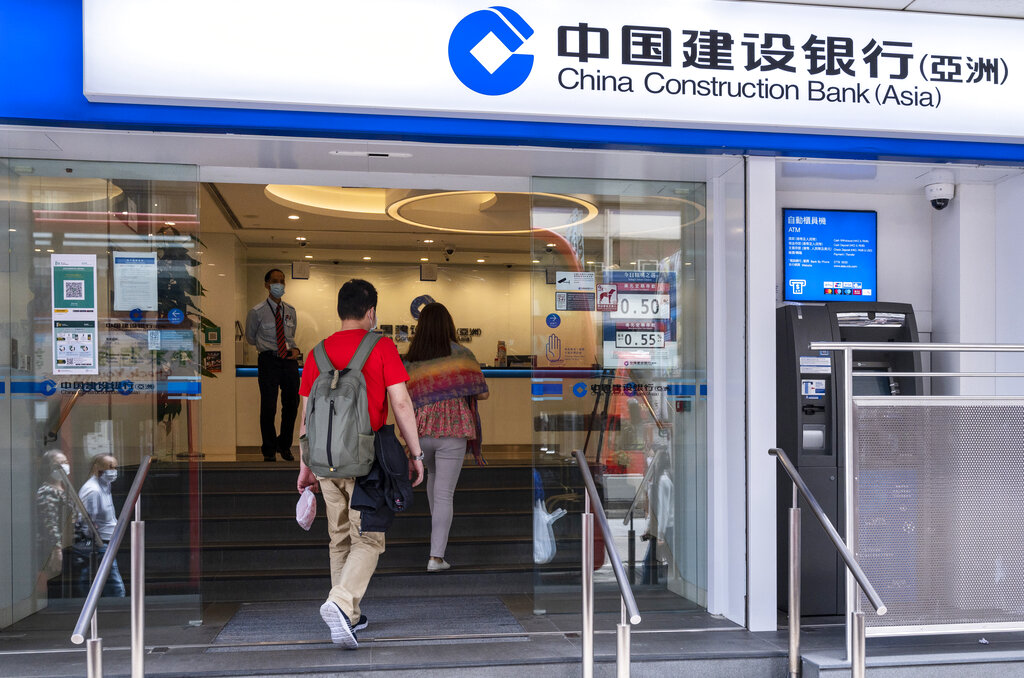
As countries and economies around the world continue to deal with the fallout of the coronavirus pandemic and related lockdowns, investors are looking to the earnings numbers of major banks to see just how bad the impact has been—or will be.
Our recent report on China’s banks found that first-quarter 2020 results were largely in line with our expectations, as loans and total asset growth for most banks accelerated from the year-ago period. Loan growth was propped up by the People's Bank of China's liquidity injection and strong loan demand by corporates early in the year.
"However, despite the positive loan growth, most banks recorded an across-the-board slowdown on narrowing net interest margins and slowing fee income growth. We see modest pressure on the core Tier 1 ratio for most banks and expect the issuance of perpetual bonds and preferred shares to continue. However, the effect on shareholders is minimal, as strong organic growth in equity and falling financing costs will help offset the impact," points out Morningstar senior equity analyst Iris Tan.
A Look at the Numbers
China Merchants Bank was the outperformer in the first quarter, with 10.0% year-on-year net profit growth. China Construction Bank and Agricultural Bank of China reported the highest net profit growth among state-owned enterprise peers at around 5.0%. Net profit growth at Industrial and Commercial Bank of China was a slight disappointment at 3.2%.
Meanwhile, net interest margins declined from the fourth quarter of 2019 for most banks. Industrial and Commercial Bank of China, China Construction Bank, China Merchants Bank, and Postal Savings Bank of China saw significant year-on-year declines of 10-11 basis points. Tan projects a 15- to 25-basis-point decline for large banks, based on her expectation of a 50- to 100-basis-point cut in the interest-rate benchmark in 2020.
Fee income also suffered from a contraction in major services lines, including bank cards, agent sales of financial products, and custody services. China Merchants Bank, Agricultural Bank of China, and China Construction Bank outperformed among large banks.
The credit quality of China Merchants Bank, China Construction Bank, Agricultural Bank of China, and Postal Savings Bank of China held up well, while Industrial and Commercial Bank of China faced some pressure. Bank of China, Bank of Communications, and China Minsheng Bank saw more challenges than peers. Tan maintains a full-year forecast of a 10- to 15-basis-point increase in credit costs for the large banks.
Finally, the COVID-19 pandemic has weakened banks' profitability. Tan expects refinancing needs to meet stricter capital requirements in two years' time as set by the Financial Stability Board and to support loan growth. She forecasts a 12% average return on equity for the large state-owned enterprise banks, with a 30% dividend payout in 2020 and 2021, and believes they should continue to boost their core Tier 1 ratios as long as growth in risk-weighted assets remains below 8.4%, higher than the 6.0%-7.5% compound annual growth rate of the past five years.
Risks
The report notes that the uncertainty about potentially worsening credit quality remains a key risk. The latest results show that credit quality was modestly affected, but Morningstar anticipates that nonperforming loans will be progressively recognized.
In the short term, Tan believes that the main risks include downward pressure on net interest margins owing to the People's Bank of China's policy easing and worsening credit quality as a result of the slowing economy. According to Tan, the main longer-term risks are the banks' need to replenish capital, given the pickup in lending growth to support the slowing economy. "Another risk we are keeping an eye on is whether credit quality further worsens if the country's financial leverage continues to climb," she says.
From a loan-loss perspective, low-end manufacturing, export-oriented industries, and services sectors that are directly impacted by the COVID-19 lockdown are most vulnerable, as are the banks with heavy exposure to these sectors. "These are primarily urban or commercial banks and joint-stock banks," Tan points out.
Opportunities in the Sector
Tan also says that there is an adequate buffer for the banks that we cover, and we expect neither a material deterioration in bank capital nor a cut in dividend payout ratios to below 30%.
“Chinese banks in our coverage universe are trading at historical trough valuation levels, at 0.3 to 0.7 times forward price/book—with the exception of China Merchants Bank. We are positive on the long-term outlook for quality banks, especially China Merchants Bank, China Construction Bank, and Industrial and Commercial Bank of China," Tan says, adding that she likes their enviable funding cost advantage, quality customer base, and strong capital position. "We believe their prudent operations and high profitability/provision coverage should enable them better fend off rising credit-quality risks," she says.
Her top picks are China Construction Bank and Industrial and Commercial Bank of China, as she believes they have better risk/reward propositions. "Upside catalysts include better-than-expected performance in net interest margins and credit quality in 2020," Tan says.
©2020 Morningstar. All rights reserved. The information, data, analyses and opinions presented herein do not constitute investment advice; are provided as of the date written, solely for informational purposes; and subject to change at any time without notice. This content is not an offer to buy or sell any particular security and is not warranted to be correct, complete or accurate. Past performance is not a guarantee of future results. The Morningstar name and logo are registered marks of Morningstar, Inc. This article includes proprietary materials of Morningstar; reproduction, transcription or other use, by any means, in whole or in part, without prior, written consent of Morningstar is prohibited. This article is intended for general circulation, and does not take into account the specific investment objectives, financial situation or particular needs of any particular person. Investors should consult a financial adviser regarding the suitability of any investment product, taking into account their specific investment objectives, financial situation or particular needs, before making any investment decisions. Morningstar Investment Management Asia Limited is licensed and regulated by the Hong Kong Securities and Futures Commission to provide investment research and investment advisory services to professional investors only. Morningstar Investment Adviser Singapore Pte. Limited is licensed by the Monetary Authority of Singapore to provide financial advisory services in Singapore. Either Morningstar Investment Management Asia Limited or Morningstar Investment Adviser Singapore Pte. Limited will be the entity responsible for the creation and distribution of the research services described in this article.









.png)









